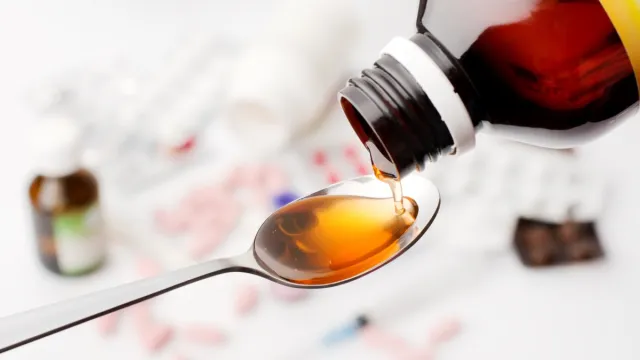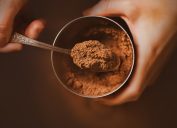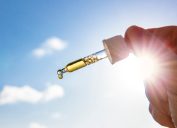Antibiotic Recalled Over Potentially "Life-Threatening" Contamination, FDA Warns
Recalled Atovaquone can cause dangerous infections, especially in immunocompromised patients.

Getting sick is never fun, especially if it requires a trip to urgent care or some time off from work. And if your doctor diagnoses you with a bacterial infection, they'll likely prescribe an antibiotic to knock it out of your system over a few days or weeks. But now, the U.S. Food and Drug Administration (FDA) is issuing a warning about one specific antibiotic—Atovaquone—that can have the opposite effect, potentially leading to "life-threatening infections."
RELATED: Pain Medication Recalled Over Contamination That Could "Cause Stroke," FDA Warns.
According to a March 29 press release, AvKARE, LLC is voluntarily recalling one lot of Atovaquone Oral Suspension, USP 750mg/5mL that was distributed to the consumer/user level. The medication is prescribed "for prevention and treatment of Pneumocystis jiroveci pneumonia (PCP)," which is an infection caused by the Pneumocystis jirovecii fungus, according to the Centers for Disease Control and Prevention (CDC). The medication is indicated for use in adults and children 13 years of age and older who can't tolerate other treatments, namely trimethoprim-sulfamethoxazole, the FDA release states.
This specific lot of Atovaquone Oral Suspension, USP (lot number AW0221A) is being pulled due to "potential Bacillus cereus contamination," which was discovered when the product underwent stability testing at a third-party lab, the FDA states. According to Cleveland Clinic, Bacillus cereus (B. cereus) is a spore-forming bacteria that produces a harmful toxin that makes you sick. It can cause food poisoning as well as non-intestinal illnesses.
"In the population most at risk, immunocompromised population, there is a reasonable probability that microbial contamination of Atovaquone Oral Suspension can result in disseminated, life threatening infections such as endocarditis and necrotizing soft tissue infections," the press release reads.
As Mayo Clinic states, endocarditis is an inflammation of the heart's chambers and valves, while necrotizing soft tissue infections cause patches of tissue to die, per Johns Hopkins Medicine.
While these conditions are serious, as of the March 29 release, AvKARE hadn't received any reports of adverse events related to the recall. However, health officials ask that consumers contact their doctor or healthcare provider if any issues related to the medication do arise.
RELATED: Deadly Bacterial Meningitis Is Spreading in the U.S., CDC Says—These Are the Symptoms.
Recalled Atovaquone Oral Suspension, USP products were packaged in cartons and distributed between March 18 and March 21 nationwide to wholesalers. Affected products can be identified by the National Drug Code (NDC) 50268-086-12, which is listed in red on the packaging, as well as the Universal Product Code (UPC), 5026808612, which is printed beneath the barcode.
AvKARE is informing distributors and wholesale customers about the recall via mailings and email, also arranging for a return of the medication. Wholesalers are asked to "examine their inventory" and stop dispensing any recalled lots. Consumers who have this product at home should stop using it immediately, per the FDA's instructions. The Atovaquone Oral Suspension, USP products can be returned to the place of purchase or thrown away.
The FDA also asks that you report adverse reactions or quality problems to its MedWatch Adverse Event reporting program either online, by mail, or via fax.
For specific questions about the recall, consumers can contact AvKARE by phone at 1-855-361-3993 or email [email protected], Monday through Friday, between 9 a.m. and 5 p.m. Eastern Standard Time (EST).
- Source: FDA: AvKARE, LLC. Issues Voluntary Nationwide Recall of Atovaquone Oral Suspension, USP 750 mg/5 mL Due to Potential Bacillus Cereus Contamination
- Source: CDC: Pneumocystis pneumonia
- Source: Cleveland Clinic: Bacillus Cereus
- Source: Mayo Clinic: Endocarditis
- Source: Johns Hopkins Medicine: Necrotizing Soft Tissue Infection
- Source: Reporting Serious Problems to FDA
- Source: MedWatch Forms for FDA Safety Reporting





















